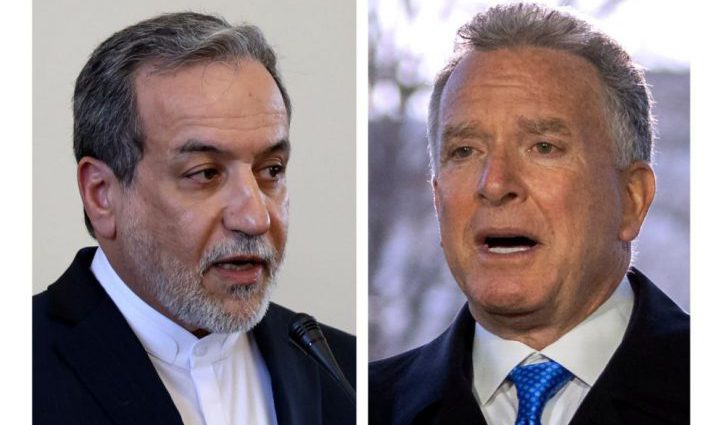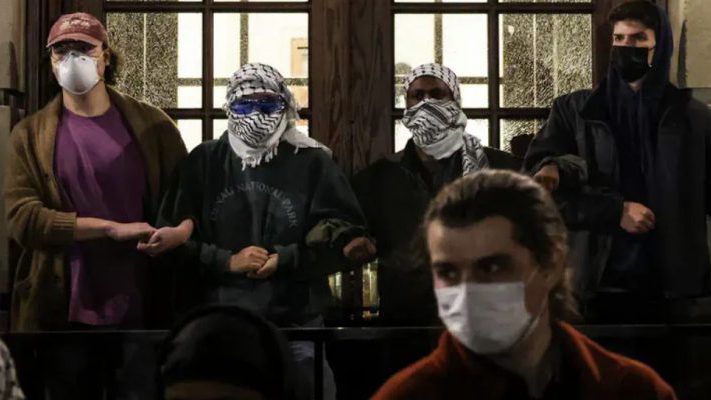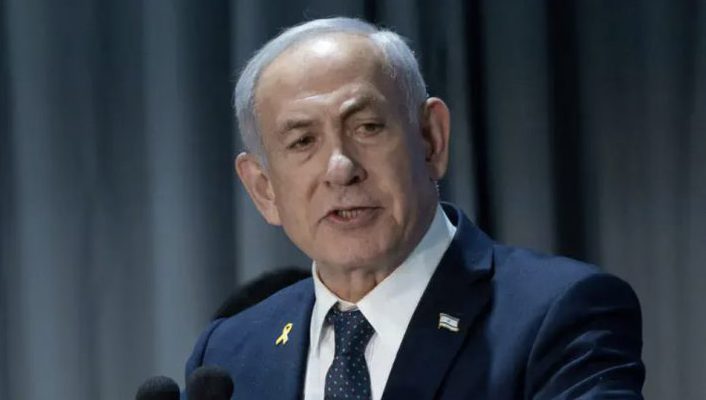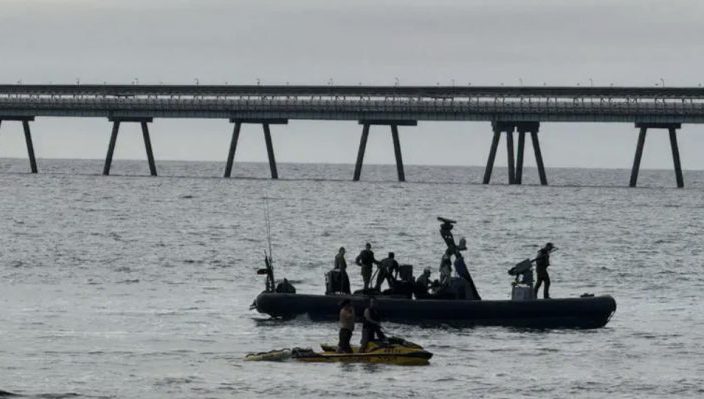Iranian state TV said U.S. envoy Witkoff and Iranian FM Araghchi briefly spoke in the presence of Oman’s foreign minister after the mediated talks. Witkoff told the WSJ that weaponization of Iran’s nuclear program is a U.S. ‘red line’
Iran and the United States began high-level talks in Oman on Saturday aimed at jump-starting negotiations over Tehran’s rapidly advancing nuclear program.
According to Iranian state television, the two sides are expected to hold further negotiations next week. U.S. President Donald Trump has threatened military action if no agreement is reached.
The talks are focused on de-escalating regional tensions, prisoner exchanges and limited agreements to ease sanctions in exchange for controlling Iran’s nuclear program, an Omani source told Reuters.
Oman’s Foreign Minister Badr Albusaidi posted on X that the meeting between Aragchi and Witkoff took place in a “friendly atmosphere conducive to bridging viewpoints and ultimately achieving regional and global peace, security and stability.”
The second round of talks between will “probably take place” on April 19, Araqchi told State TV, with the aim of discussing the broad framework of a potential agreement.
He added the location of talks may not be in Oman, but will still take place under Omani intermediation. “None of the parties are looking for fruitless talks, for talks that are time-wasting,” Before the talks began, there was a dispute over just how the negotiations would go. Trump insisted they would be direct negotiations. However, Iran’s Foreign Minister Abbas Araghchi said he would be speaking indirectly through a mediator to U.S. Middle East envoy Steve Witkoff.
“These talks will be a held at a location planned by the Omani hosts with representatives of the Islamic Republic of Iran and the United States seated in separate rooms,” a spokesperson for Iran’s Foreign Ministry said in a post on X.
According to Iranian media reports, the Omani foreign minister is expected to serve as the mediator. The head of Iran’s delegation is expected to be an official aiming to avoid “American pressure and threats.”
Following the talks, Iranian state television reported that Witkoff and Iranian Foreign Minister Abbas Araghchi had a brief exchange in the presence of the Omani foreign minister, marking a direct interaction between the two officials.
Araghchi earlier said the negotiations are an opportunity to “reach a preliminary understanding” as long as they are “based on equality,” adding that “if there is enough willingess,” the talks could result in a timeline for negotiations.
The Iranian foreign minister also said that the delegation came to the talks in Oman “with complete seriousness” and the intention of reaching a “fair and honorable agreement.”
Witkoff said in an interview with The Wall Street Journal earlier Saturday that the U.S. will not accept a nuclear-armed Iran.
“I think our position begins with dismantlement of your [nuclear] program,” he said in the interview. “That doesn’t mean, by the way, that at the margin we’re not going to find other ways to find compromise between the two countries. Where our red line will be, there can’t be weaponization of your nuclear capability.”
Witkoff said that if Iran refuses to dismantle its nuclear program, it will be up to Trump to decide how to proceed and what aspects of the Iranian nuclear program the U.S. could potentially accept. He added that the goal of Saturday’s talks is to build trust and explain why reaching a deal is important – not to achieve full agreements.
According to him, any deal would require significant oversight measures to ensure that Iran is not working to build a nuclear bomb.
Iran’s Foreign Ministry spokesperson said on Friday that the country intends to “give the talks a real chance.”
“We plan to test the intent and willingness of the other side on Saturday,” wrote Iranian Foreign Ministry spokesman Esmail Baghaei on his X account.
On Monday, President Trump said that the talks represent direct negotiations between senior officials from both countries, and emphasized that if the discussions fail, “Iran is going to be in great danger.” The New York Times reported on Friday that senior Iranian officials met with Iran’s Supreme Leader, Ayatollah Ali Khamenei, and urged him to agree to hold talks with the U.S. on the nuclear issue despite his opposition.
The officials warned Khamenei that a war with the U.S., combined with the worsening economic crisis in the country, could lead to the collapse of the regime, and therefore, he must enter negotiations with Washington, even directly.
The New York Times cited two sources familiar with the matter who said that the meeting with Khamenei was attended by President Masoud Pezeshkian alongside the heads of parliament and the judiciary, and that it took place over the past month. According to the sources, those present at the meeting warned Khamenei that the threat of war with the U.S. and Israel is “extremely serious” and that Tehran’s outright refusal to negotiate would make an attack on the nuclear facilities in Natanz and Fordow inevitable.





